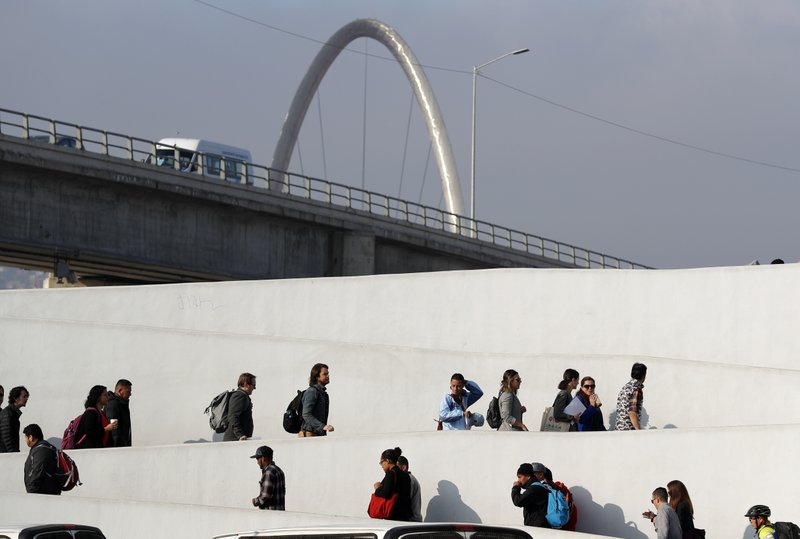SAN FRANCISCO -- Civil-rights groups seeking to block President Donald Trump's policy of returning asylum seekers to Mexico had met basic requirements to bring their case, a judge said Friday, but he questioned one of their key arguments to show the practice is illegal.
Judge Richard Seeborg also had tough questions for a Justice Department attorney who defended the practice as a lawful response to an overtaxed immigration system. Seeborg did not immediately issue a ruling at the end of a hearing in San Francisco to help him decide whether to stop the policy while a lawsuit moves forward.
The policy began in January and marked an unprecedented change to the U.S. asylum system. Families seeking asylum are typically released in the U.S. with notices to appear in immigration court, but the Trump administration began sending them back to Mexico to await their court hearings.
The policy affects those who seek asylum at the nation's busiest border crossing, in San Diego, and the Calexico port of entry that's about 120 miles east.
The lawsuit on behalf of 11 asylum seekers from Central America and legal advocacy groups says the administration is violating U.S. law by failing to adequately evaluate the dangers that migrants face in Mexico.
Under the new policy, asylum seekers are not guaranteed interpreters or lawyers and don't get to argue to a judge that they face the potential of persecution or torture if they are sent back to Mexico, said Judy Rabinovitz, an attorney for the American Civil Liberties Union, one of the groups that is suing.
"The process they have right now completely turns the whole notion of protection on its head," she said.
Seeborg questioned the lawsuit's argument that the administration misapplied a U.S. law that allows the return of migrants to Mexico. The ACLU and the other groups say that law does not apply to asylum seekers who cross the border illegally or arrive at an entry port without proper documents.
Seeborg said they faced a "tall order" convincing him that asylum seekers were always exempt from that law. He did say the plaintiffs had authority to bring the case, and the court could hear it.
The Trump administration hopes that making asylum seekers wait in Mexico will discourage weak claims and help reduce an immigration court backlog of more than 800,000 cases.
Justice Department attorney Scott Stewart said there is a process to protect migrants who could face harm in Mexico. All 11 plaintiffs in the lawsuit are represented by attorneys, and 10 already have appeared for court proceedings, he said.
"There will be occasional hiccups to work out," he said. "But it's going. It's underway."
Seeborg questioned the Justice Department's argument that the asylum seekers sent back to Mexico are not eligible for certain protections such as a hearing before an immigration judge.
"The same thing is happening to these people for good or bad," he said.
A Section on 03/23/2019
